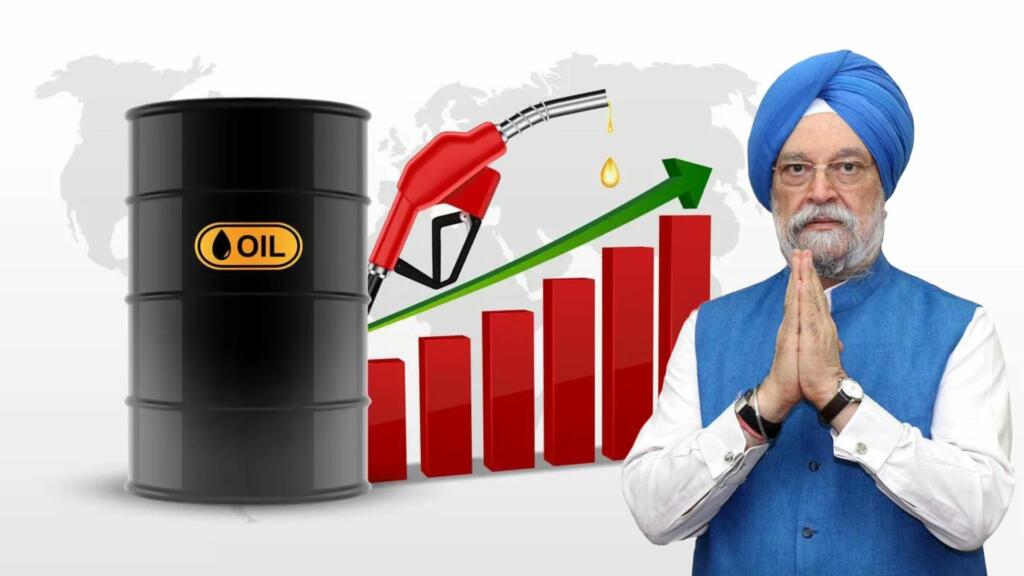In the ever-evolving landscape of global geopolitics, India finds itself delicately balancing its long-standing friendship with Russia against the backdrop of economic pragmatism and changing market dynamics. Recent reports of a significant reduction in crude oil imports from Russia have sparked discussions about the intricacies involved in India’s diplomatic dance, emphasizing that alliances should not come at the expense of national self-interest.
Since December, there has been a notable diversion of more than a dozen Russian tankers from India, coinciding with Indian refiners slashing Russian crude imports. The decision, according to at least four individuals familiar with the matter, stems from Moscow’s sharp reduction in discounts, plunging from around $10 per barrel to a mere $2 in recent months. The key factor driving this shift, they assert, is not political but purely economic: the price of crude.
Indian oil companies have been quick to clarify that this decrease in imports is rooted in market dynamics rather than political pressure. They underscore the fundamental principle that commercial decisions are driven by economic considerations. It’s a rational response to fluctuating prices and discounts rather than a reflection of strained diplomatic relations between India and Russia.
The narrative gains credence when we consider that Indian refiners began increasing purchases of Russian crude only when Moscow offered substantial discounts. Consequently, Russian oil’s share of India’s total requirements surged from a meager 0.2% in early 2022 to nearly one-third. This shift was motivated primarily by economic incentives rather than any external pressures or geopolitical factors, according to a second official.
Also Read: Modi Government’s major boost to the indigenous crude oil sector
Union Minister of Petroleum and Natural Gas, Hardeep Singh Puri, dispelled rumors of payment-related issues, asserting that the reduction in crude oil imports from Russia is purely a function of pricing. In a diplomatic tone, Minister Puri clarified, “There is only one requirement that Indian consumers get the energy at the most economical price without disruption.” He added, “If they don’t give a discount, why would we buy it?”
India, being one of the largest importers of crude oil globally, has opted for a diversified approach to secure its energy needs. While Russia remains a significant supplier, the pragmatic shift in imports reflects India’s commitment to securing the best economic deals. Minister Puri emphasized that the country will continue purchasing crude oil from vendors offering the most competitive rates.
The minister’s words shed light on India’s strategic imperative to ensure energy security while simultaneously navigating the complexities of international relations. As he stated, “We are buying 1.5 million barrels per day of oil from Russia. If they don’t give a discount, why would we buy it?” This underscores India’s commitment to striking a balance between its friendship with Russia and its responsibility to ensure economic viability for its citizens.
The backdrop to this economic pragmatism is the global geopolitical shift resulting from sanctions imposed on Russia during the Ukraine war. Russia, in response, began offering its oil at heavy discounts, making it an attractive option for countries like India. However, as economic considerations take precedence, India is reevaluating its dependence on Russian oil, signaling a willingness to explore diverse sources to meet its energy needs.
In essence, India’s approach can be viewed as a nuanced form of energy diplomacy, where economic interests and diplomatic ties intertwine. The country is navigating the complex global energy market with the precision of a tightrope walker, ensuring that its diplomatic relationships remain intact while simultaneously safeguarding the economic interests of its citizens.
As we wrap up the year and gear up for 2024, India’s diplomatic stance on crude oil imports reflects a dynamic and adaptive approach to international relations. The nation is sending a clear message that alliances are essential, but they cannot come at the expense of economic prudence and the well-being of its citizens. The evolving energy landscape will likely see India continuing to diversify its oil import options, maintaining a delicate balance between friendship and self-interest on the global stage.
Also Watch:
